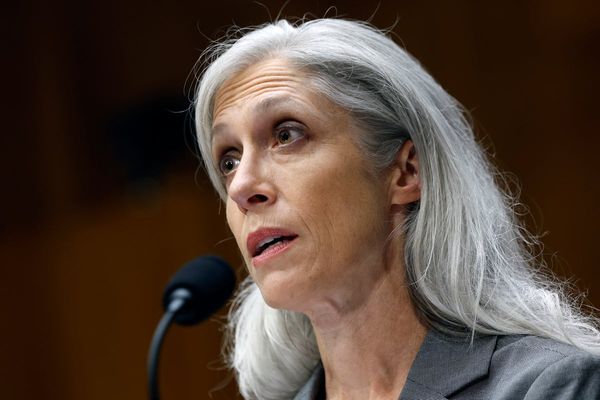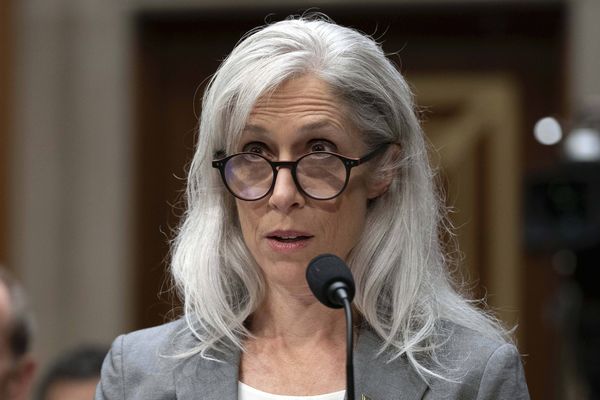Once considered a niche in equities and funds, ESG investing is here to stay. Sustainable fund growth is projected to double over the next few years, according to data from Dow Jones.
Worried climate change will impact business operations and the planet, investors and companies are reviewing corporate sustainability plans. Extreme weather events pose risks to factories and warehouses around the world. And the pressure is on for companies to adopt net-zero emissions policies.
Plus, regulators and investors are becoming more critical of ESG claims. Companies must produce reliable, high-quality ESG data to satisfy investors and government oversight.
"Research shows that more than half of financial professionals said that traditional ways of valuing companies are inadequate for assessing sustainable investments," said Ricardo Aceves, who heads ESG and Impact Investing Research at Dow Jones.
By combining companies rated highly using Dow Jones' ESG data with IBD's fundamental and technical stock criteria, Investor's Business Daily created its 2022 100 Best ESG Companies list.
Aceves discussed ESG investing with IBD. And he explained Dow Jones' process of rating companies for their environmental, social and governance efforts. He's based in Barcelona, Spain.
This interview has been edited for length and clarity.
ESG Investing: Dow Jones Sustainability Scores
IBD: How are Dow Jones' Sustainability scores determined?
Aceves: Dow Jones Sustainability scores are powered by two sources of information. One is publicly available data disclosed by companies. The second source of information is the vast amount of company media coverage around the world (gathered) using Factiva, which is a media aggregation platform that is part of the Dow Jones family.
Using company disclosed data, we're able to see performance in sustainability metrics from the company's perspective. With the news data, we see an external point of view. So by leveraging these two information sources — using our proprietary human machine learning process — we can compute scores in 26 different sustainability categories. They are then weighted based on Sustainability Accounting Board Standards (SASB) for each industry. That gave us an overall score. This aggregate score provides a broad view of a company's sustainability performance.
ESG Trends
IBD: What are some of the trends that you saw in this year's ESG activities?
Aceves: In 2020 and 2021, the ESG focus was mainly on social challenges as a result of the pandemic, and social movements like Black Lives Matter and the #MeToo movement. But recent data suggests a shift toward environmental concerns, specifically with aspects linked to climate change such as greenhouse gas emissions and air quality. And more recently, (there's concern about) environmental issues related to energy management and the physical impacts of climate change.
This shift was especially noticeable after the U.N. Climate Change Conference (COP26) in Glasgow last year. And since we have less than 10 years to meet some of the most ambitious climate goals in history, many companies, countries and organizations are focusing on dramatically cutting their carbon emissions by 2030.
So the energy industry, namely oil and gas companies and power generators, are at a pivotal point when it comes to transitioning toward greener forms of energy. It shouldn't be a surprise that a higher number of energy names showed up in this year's rankings. Companies in this sector are adapting their business approach to environmental demands.
Climate Change
IBD: How have extreme weather events across the globe this year impacted the importance and interest in ESG reporting?
Aceves: It's playing an important role. Extreme weather events can affect companies in different ways. Hazards include extreme storms, floods, increasing heat waves, droughts and wildfires. These events can damage a company's physical assets, operations, supply chains, and consequently their bottom lines and balance sheets. And these events' length and intensity are only increasing due to climate change.
The latest report from the U.N. Intergovernmental Panel on Climate Change found that greenhouse gas emissions must peak no later than 2025 to avoid the most dangerous and irreversible effects of climate change.
Read The Rest Of Our Comprehensive ESG Investing Special Report
- List Of IBD's 100 Best ESG Companies for 2022, including ranking methodology
- IBD's Comprehensive Overview On ESG Investing
- Best ESG Companies in eight industries
- Worthington Industries ESG profile
- Verisk ESG profile
- First Solar ESG profile
- Apple ESG profile
So, more and more companies are looking closely at the physical and transition risks that climate change poses to their businesses and operations. And as that relates to sustainable investing growth, investors are increasingly requiring companies to disclose assessments and information about these sorts of risks. Those (businesses) who fail to quickly recognize the shifting appetite for corporate action on climate are going to be at risk of investors potentially divesting assets.
Investing In A Bear Market
IBD: What role did rocky market conditions play in ESG performance this year?
Aceves: ESG fund performance has seen strong volatility this year. Recent data shows that U.S. sustainable funds lost some $1.66 billion in the second quarter of this year. And that's because macroeconomic headwinds and the global energy crisis exacerbated fears of a rise in inflation, the tightening of monetary policy and eventually recession. The second quarter was the first period that registered outflows in more than five years, before sustainable funds made it to the main stage.
Still, more recent data suggests that the outlook for sustainable funds remains positive. Especially for those funds specialized in renewable energy. That outlook is being fueled by the Inflation Reduction Act, which is causing greater interest in clean energy investments.
Greenwashing And The Anti-ESG Movement
IBD: We've seen growing anti-ESG backlash because of these funds' potentially higher fees and the rise of greenwashing fears. Does this criticism diminish the importance of ESG investing?
Aceves: One of the key issues with ESG is that it means different things to different people. Some critics consider it to be the work of activists who file shareholder proposals to agitate for corporate change. Others see the acronym as a set of unstructured data for investors seeking more information about their holdings.
But climate change is a clear and present danger. It would be short sighted to ignore ESG reporting's influence in extracting information and disclosures around climate risks, but also for diversity and inclusion and for driving pressure for workplace rights. The media and other observers have pointed out that government action is vital to tackle problems like global warming, but in the absence of comprehensive reform, ESG is clearly having some impact. So I don't see, at least in the short term, that there's going to be an important disruption to ESG or ESG investing.
The Role Of Regulation
IBD: The U.S. Securities and Exchange Commission (SEC) has moved to require public companies to report specific ESG data more consistently and in more detail. What impact will that have on ESG reports and ESG investing? Are similar moves occurring in regulatory bodies in Europe?
Aceves: Investors and other capital providers are increasingly recognizing that a company's financial performance, risk profile and longevity are closely tied to sustainability. Therefore, they're increasingly looking to understand how a company is performing on those various ESG issues. This information influences the decisions they make. And that directly affects the company's business activity.
Governments around the world are responding to this market (and the need to adopt) policies that promote sustainability and mandate corporate disclosures of sustainability. In the U.S., the SEC has proposed new (climate-related) disclosure regulations for all U.S. listed companies, which could come into effect by 2024. These regulations (could be) very significant for ESG reporting and investing because in order to disclose such information, companies (must) collect and report high-quality data that can be audited in the same way financial information (is audited).
Similar moves are happening in Europe. So this regulatory movement is pushing for more disclosure and more transparency.
Growth Opportunities For ESG Investing
IBD: Gen Z and millennial investors tend to be more interested in sustainable investing. Can you talk about that generational breakdown and related opportunities for ESG investing growth?
Aceves: Roughly a third of the interest in ESG investing is coming from Gen Z (18- to 25-year-old) clients. However, less than a fifth of financial professionals surveyed by Dow Jones have focused their attention on this demographic for ESG growth. In contrast, financial advisors are almost four times more likely to target millennials (26- to 41-year-olds) even though this age group accounts for a similar portion of ESG investment inquiries.
(Thus,) the financial community of investment leaders we polled might be missing out on a significant growth opportunity with Gen Z investors. While this group faces many barriers to managing their finances and investing, they are seeking guidance. And it's time for the financial industry to take them more seriously.
Follow Alexis Garcia on Twitter @IBD_Alexis for business news and more.







